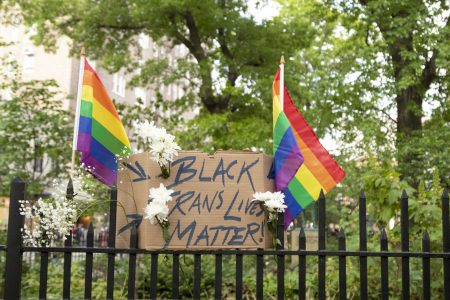By David Lloyd, national policy advisor for The Kennedy Forum
In their recent decision (Bostock v. Clayton County), the U.S. Supreme Court ruled 6-3 that the Civil Rights Act of 1964’s employment discrimination protections extend to sexual orientation and gender identity. By extending the common-sense reading of the law’s text, the justices determined that discrimination against LGBTQ individuals based on their sexual orientation and/or gender identify was inherently “because of sex.”
As Justice Gorsuch wrote for the majority, “An employer who fires an individual for being homosexual or transgender fires that person for traits or actions it would not have questioned in members of a different sex. It is impossible to discriminate against a person for being homosexual or transgender without discriminating against that individual based on sex.”
This ruling has the immediate effect of prohibiting employment discrimination based on sexual orientation and gender identity in 29 states. Such discrimination has no place in America. For far too long, it has denied members of the LGBTQ community basic rights and dignities—harming their mental and physical health in the process.
As American Psychological Association president Sandra Shullman said in a statement hailing the ruling, “When laws are enacted to prohibit discrimination against gay and transgender individuals, research has shown that health outcomes, both mental and physical, improve. Workplaces that have adopted LGBT-supportive policies have also benefited from improved health among those employees, as well as greater job commitment, job satisfaction and productivity.”
Employment discrimination has been especially widespread against transgender people, with more than 25% reporting they have lost employment because of bias, and more than 75% reporting workplace discrimination. Transgender people are also much more likely to have lost their jobs during the pandemic and calls to the Trans Lifeline have increased dramatically.
The Supreme Court’s landmark decision may also ultimately help to overturn the Trump Administration’s new, deeply harmful rule that permits discrimination against LGBTQ people in health care and health insurance. The Kennedy Forum and numerous other organizations have condemned the rule, which overturned protections the Obama Administration put in place under the Affordable Care Act to stop insurer discrimination based on sexual orientation and gender identity.
Overturning the Administration’s new rule is critically important. For example, by allowing discrimination based on gender identity, health care providers are now once again allowed to refuse treatment for transgender people. Similarly, insurers would be allowed to deny coverage for gender-affirming surgery, which has been shown to have significant long-term mental health benefits. Repealing federal anti-discrimination protections is all the more problematic given the fact that nearly 30% of transgender people have reported being refused care in the past year, with 8% of lesbian, gay, or bisexual people being refused care.
Tragically, this is not at all surprising, given the numerous injustices transgender people regularly encounter across all aspects of American life. Ending hate and violence against this community, particularly transgender women of color, is especially urgent. In 2017 and 2018, FBI statistics show hate crimes against transgender people rose significantly, with rising numbers of horrific murders of transgender people, primarily black trans women. Just last week, two black trans women were murdered—Riah Milton in Liberty Township, Ohio, and Dominique “Rem’mie” Fells in Philadelphia—prompting national protests.
So, while Americans celebrate the major victory in the Supreme Court, we must also remain steadfast in our efforts to root out all systemic racism and discrimination.
Black Lives Matter. Black Trans Lives Matter. Within those words lies an inherent truth that Black people and Trans people deserve to lead fulfilling lives free from trauma and discrimination at the hands of others.
As mental health advocates, we must broaden our lens to see the bigger picture, and fight to stop the viscous cycle of injustice that leads to Black people having higher rates of being uninsured, lacking culturally competent care, and dying prematurely. Black people are also less likely to be offered evidence-based medications or psychotherapy when they need it, and Black people with mental health conditions are more likely to be incarcerated. These disparities are even larger for Black LGBTQ people.
We can no longer separate social justice and health advocacy. They go hand in hand. Let’s use our voices to educate peers, policymakers, and business leaders: there is no health without mental health and there is no health without social justice and equality.

